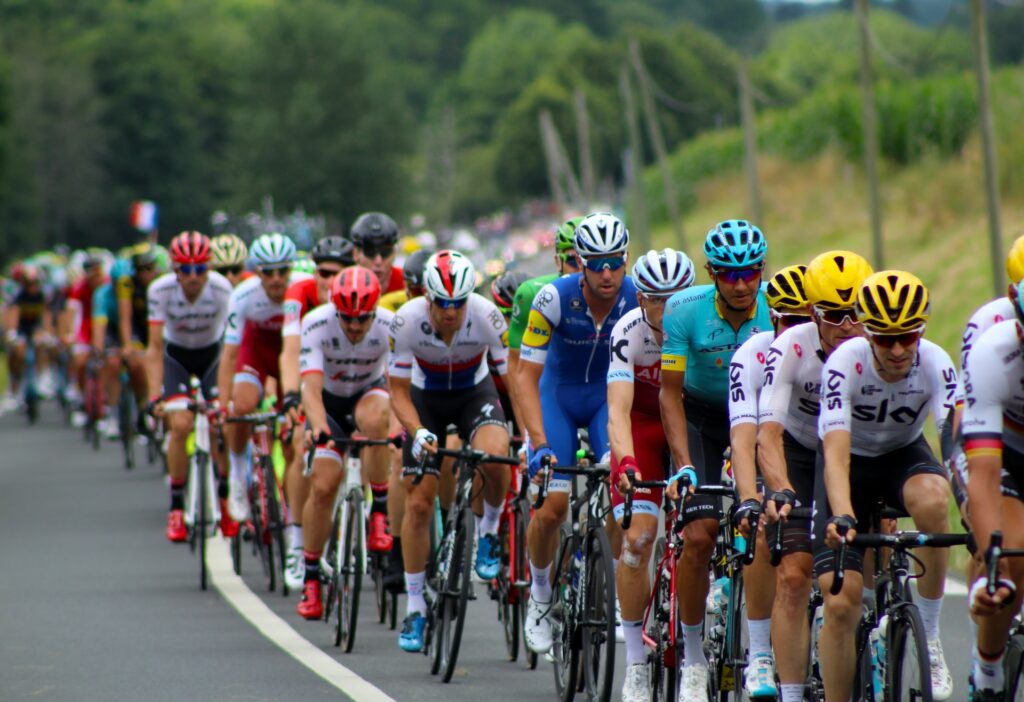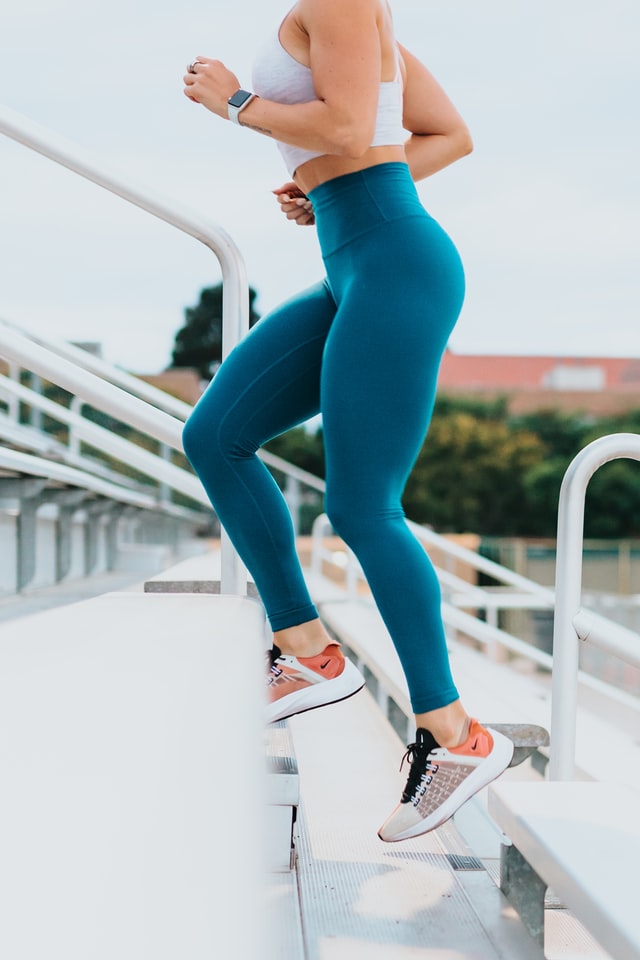WHICH WORKOUT IS BETTER FOR YOU—CYCLING OR RUNNING?
It’s a war as old as time with both sides passionately fighting it out for the win—and if you were dedicating hours of your time, your entire body, and your sweat, blood, and tears to a particular sport, you would too!
However, we’re here to finally have this battle come to a close. In this article, we’re here to settle the score.
Between cycling and running, the question lies—which is actually better for your body (or your overall health—mentally, physically, and emotionally)?
In this article, we’re going to take you through the different aspects worth talking about when it comes to comparing the two types of workouts. Although you might be one-sided passionate about a particular workout, we swear we’re doing our best in providing you with the most unbiased review that we can give you—so please don’t shoot the messenger!
Without further ado, let’s get into it:
The Contenders:
Cycling—In one corner, we have cycling.
Used all around the world as an effective mode of transportation, cycling makes it easy for you to turn your workout into a way that can get you from point A to point B—all without breaking a sweat—or becoming drenched in sweat (the choice is yours).

Not only is biking great for you physically, mentally, and emotionally, it is also quite beneficial when it comes to the health of our world! The more people around the world use their bike as a means of daily transportation—commuting to school or work—the less the need for cars around us becomes. This helps lessen the load when it comes to harmful emissions going into the environment and atmosphere.
Running—In the other corner, we have another viable contender.
Although you may not time-effectively use it to commute to work or school (unless you’re a long-distance runner who’s okay with carrying their shower caddy while running), it is still a highly effective form of exercise.
One of the most convenient forms of working out, you really don’t need anything to run. Although we like our watches, fit-form shoes, and other running gear—technically speaking, you really don’t need anything to run! This sort of simplistic exercise taps into the basics of who we are at a human level.
You also don’t need to learn how to do anything—you’ve most likely got running down when you were learning how to walk! Although there are ways that you can “perfect” your form, this makes the learning curve of running as exercise very, very short.

The Main Event:
When we compare both running and cycling with one another as to which is better, we’re going to go through the different components. Although it ultimately comes out to being personal preference as to which you choose to participate in, there are some very distinct pros and cons to the two—and clear winners (in our unbiased opinion).
First, let’s take a look at a few similarities between the two types of exercises—
Labeled both as aerobic exercises, both forms of working out can be enjoyed both indoors and outdoors. Both can take place on the streets of a city if you’re more of a hustle-bustle kind of a person or can be done on a nature trail if you like being covered by the shaded coolness of the trees.
Both can be done individually or within a group—so if you’re a solo person, you can always compete by running or biking on an individual basis. However, there are always groups you can enjoy so you can work out in a group environment.
And finally, both are great for your health—mentally, emotionally, and physically. However, there are some distinct differences:
Round 1: Calorie-Burning
When you crunch the numbers, running will burn more calories than cycling because it uses more muscles all across the human body than cycling does.
Of course, this number can change depending on the intensity and duration of your workout. We say this because since cycling requires less impact on your joints and bones, you can most likely cycle longer and faster than you would be able to run.
Ruling:
When it comes down to it, making a decision based on calorie-burning, running takes this round.
Round 2: Building Muscle
If you’re looking to get bulky and build muscle, you should rather hop on a bike than throw on your running shoes.
When you’re pushing the pedals down on your bike—especially when on a more advanced course with hills—then you’re tapping more into those leg muscles. Of course, although this promotes muscles building in the lower half of your body, your upper body will often stay untouched.
Running on the other hand is a full-body workout—but doesn’t give you much opportunity when it comes to building muscle—but more on that later.
Ruling:
As for round two, biking builds more muscles.
Round 3: Toning Muscle
Looking to get ripped? As we mentioned before, biking can help build muscle since it gives you a form of resistance. However, if you’re looking to tone muscles, running can help lean out your muscle mass and tone your entire body.
Especially since it scientifically burns more calories than biking, this makes it an effective workout to get lean, toned muscles from lower body fat. This also depends on how you run—if you are running sprints uphill, for example, this is more likely to engage your Type 2 muscles, which will promote a bulkier look. However, if you’re running for distance, you will notice more toned, leaner muscles.
If done too much, you might lose muscle mass altogether, so please make sure to pair your running regimen with a healthy weight-lifting routine.
Ruling:
Running takes the muscle-toning round.
Round 4: Heart Health
The jury’s still out on this one! In terms of being a good aerobic activity for your cardiovascular health, both running and cycling are equally great!
All in all, we would recommend doing either when it comes to getting your heart to pump efficiently as you spike up your workout.
However, when it comes to how long and how far, speak to your medical professional about the right distances for you and your starting health.
Ruling:
It’s an even tie for both cycling and running when it comes to improving your heart health.
Round 5: Weight Loss
When it comes to losing weight, this isn’t just affected by your type of exercise. This is all about balance—calorie input vs. exercise expenditure.
The overall potential of your weight loss depends on your diet and how you run or cycle (doing sprints or going for distance—flat land or is there an incline). It can also change depending on how long you exercise for.
When looked at initially, running offers a more effective caloric burn therefore can be deemed better for overall weight loss. However, if you take someone who bikes for longer than someone runs for, this might change.
THE VERDICT:
It can be an impossible decision when it comes to who does working out better—runners or cyclists.
Choosing the workout that makes the most sense for you might take a bit more trial and error. You need to weigh not only the pros and cons for each but also your personal preference.
For example, although running might be more calorie-burning efficient, cycling is better on the joints and bones, which can make it the better choice if you have previous pains and want to avoid injury as much as possible.
However, if you’re not prone to injury, then running can be a great choice!

If you don’t like operating a bicycle, this is also a factor to consider.
Here are some others that you may want to think about before making a final decision:
- How much are you willing to spend on a workout? Biking can cost more initially and to maintain over time. However, running shoes and other running gear might also run up quite a bill. You may want to write down an invoice at what you would spend and choose the one that makes the most sense to you financially.
- Where do you live? If you live in a big city with lots of oncoming traffic, cycling to and from work might not be the most practical choice. However, if you have nearby trails or longer, emptier roads, you can make a better decision.
- What do you like better? At the end of the day, what you enjoy doing more is going to be the choice that makes the most sense. Even if all the pros are pointing toward running, if you detest it, then you are less likely to stick with an exercise regimen. Although some people learn to love a certain sport after some time, there’s no reason to torture yourself!
Unfortunately, we can’t make this decision for you—but we hope that we provided you with enough pros and cons from both sides to help you make an informed decision that makes the most sense for you.

